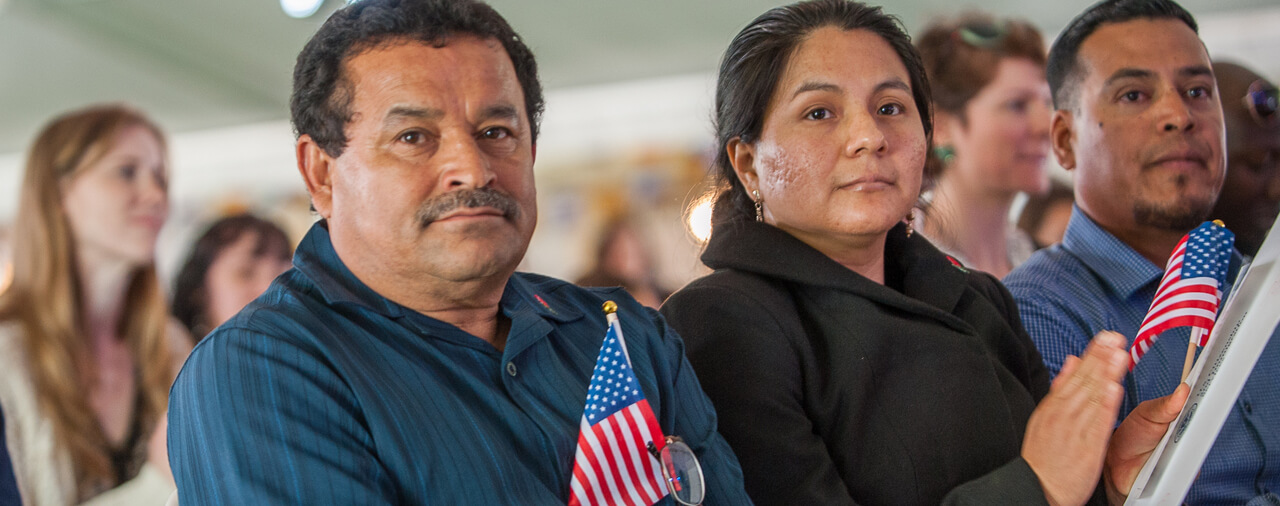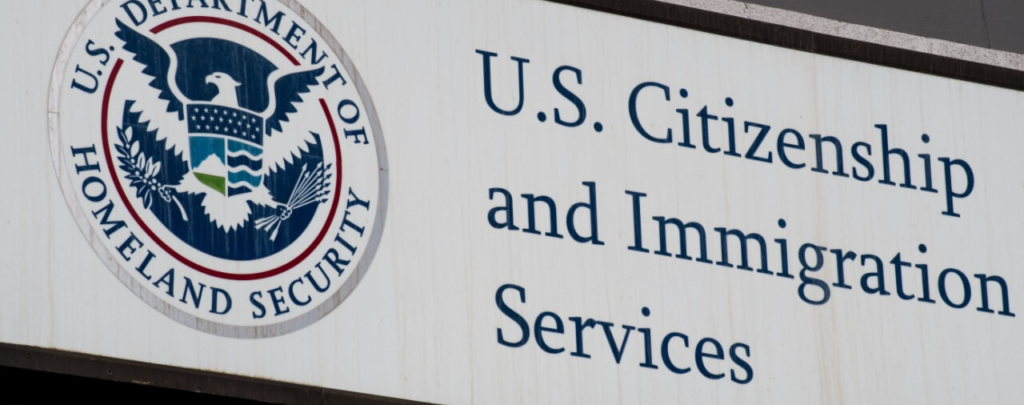Update (Jan. 29, 2019): On December 27, 2018, the USCIS terminated the special parole program for certain immediate relatives of U.S. citizens and stateless persons in the Commonwealth of the Northern Mariana Islands (CNMI). The USCIS is also terminating several other CNMI-specific categorical parole programs. Beneficiaries of these programs may be eligible for a period of transitional parole through June 29, 2019. Please see our full article on the termination to learn more [see article]. The information below is what we published while the program was still in effect. We are maintaining it for informational purposes only. But please note that this information no longer reflects current U.S. immigration law.
USCIS Extends Parole Program for Immediate Relatives of US Citizens in CNMI
On December 13, 2016 the United States Citizenship and Immigration Services (USCIS) announced that it would extend its parole program for the immediate relatives of U.S. citizens and certain stateless individuals in the Commonwealth of the Northern Mariana Islands (CNMI) [see news release].1 The program, which was originally slated to expire on December 31, 2016, will now be extended until December 31, 2018.
In this article, we will examine the rules for seeking an extension of parole in the CNMI under the rules of this program, the background of the program, and what the extension means going forward.
Program Background
The CNMI is a commonwealth of the United States. All persons born in the CNMI after November 4, 1986, are U.S. citizens from birth. Many persons who were in the CNMI prior to that date acquired citizenship on November 4, 1986 [see section].
On May 8, 2008, the Consolidated Natural Resources Act of 2008 [PDF version] extended most provisions of the U.S. immigration laws to the CNMI. Prior to that date, the CNMI had more control over immigration. As of the date of the writing of this article, the CNMI is still gradually transitioning to federal immigration laws.
In 2009, the USCIS began exercising discretionary parole authority on a case-by-case basis in the CNMI for immediate relatives of U.S. citizens and certain stateless individuals in the CNMI [PDF version]. On November 23, 2011, the USCIS announced that it would create a standardized process for such individuals in the CNMI to seek parole. The USCIS released its initial guidance on December 9, 2011 [link].2
Under the 2011 guidance, the legal spouse, unmarried child under 21 years of age, or a parent of a U.S. citizen in the CNMI who had been legally present and residing in the CNMI as of November 27, 2011, was eligible to seek parole. The guidance also covered certain “stateless” individuals in the CNMI. These individuals are certain foreign nationals born in what is now the CNMI between January 1, 1974, and January 9, 1978. The guidance explained that these individuals are sometimes referred to as “stateless” “because of their unique situation under the Covenant Act for establishing U.S. citizenship. These “stateless” individuals were eligible for a grant of parole under the 2011 program. Furthermore, the legal spouse or unmarried child (under the age of 21) of a “stateless” individual was also eligible for parole under the program. However, there was no provision for providing for the parole of a parent of a “stateless” individual. Please see our full article on immigration issues related to the Covenant Act [see article].
The USCIS allowed individuals whose previously accorded status had expired on November 27, 2011, and who applied for parole before January 31, 2012, to not accrue unlawful presence if the request was granted.
The program has been extended in increments up to the most recent extension that was announced on December 13, 2016.
Rules for Seeking Extension
In order to apply for an extension of parole under the CNMI parole program for immediate relatives of U.S. citizens and “stateless” individuals, an applicant must:
Reside in the CNMI;
Be an immediate relative (meaning the legal spouse, unmarried child under 21, or parent (regardless of the age of the child) of a U.S. citizen; and
Have been previously granted parole.
These provisions also apply to certain “stateless” individuals and the legal spouses and children thereof who were previously granted parole. It is important to note that the parole extension only applies for individuals who were previously granted parole under the program. It does not apply to new initial grants of parole.
In order to apply for an extension of parole, the applicant and the immediate relative upon whom the applicant is relying to establish eligibility for parole must submit a letter asking for the extension of parole. The letter must explain under what relationship parole is being requested. The letter must also note whether the applicant has been arrested or convicted of any crime since the previous parole request. It is important to note here that the applicant must note an arrest in the application, regardless of what, if anything, came of such arrest. If the immediate relative is a child who is too young to complete the request package, a U.S. citizen family member may complete the letter requirement on behalf of the child.
The application must also include:
Form G-325, Biographic Information (must have been completed within 30 days of filing);
Copy of Form I-94, Arrival/Departure Record;
Copy of any Employment Authorization Document (EAD) received by the applicant (if applicable); and
Copy of passport (but only if a new passport was issued subsequent to the previous grant of parole).
The USCIS explains that there is no fee for requesting an extension of parole under this program. It recommends that applicants retain copies of all of the documents. The USCIS states that the items should all be sealed in one envelope and that the followings should be written on the outside of the envelope:
Name of the applicant;
“PAROLE EXTENSION FOR IR of USC”; and
The expiration date of the current parole.
To submit the document, the USCIS explains that applicants will have two options. First, an applicant may make an appointment to request the parole extension request at the USCIS office on Saipan. In the alternative, the applicant may mail his or her request to:
DHS-USCIS
ATTN- PAROLE EXTENSION – CNMI
770 East Sunset Boulevard, Suite 185
Barrigada, Guam 96913
Benefits of Parole
If a parole extension is granted, the individual will be able to lawfully remain with his or her U.S. citizen relative in the CNMI. However, an individual who is granted parole does not also procure employment authorization incidental to parole. However, the immediate relative of the parolee may seek an EAD for the parolee by submitting a Form I-765, Application for Employment Authorization. In the alternative, the parolee may seek work authorization as a CW-1 CNMI-Only Transitional Worker, or in another nonimmigrant visa category that authorizes employment.
Conclusion
The CNMI’s Delegate to the U.S. House of Representatives, Gregorio Sablan, stated that it was his understanding that “there are fewer than 1,000” individuals in the CNMI still benefitting from this parole program.3 Parolees under the program are well advised to consult with an experienced immigration attorney both in seeking an extension of parole and in subsequently pursuing a more permanent immigration solution. Although USCIS has extended the program twice since its enactment in December of 2011, extensions beyond the new expiration date of December 31, 2018, will be at the discretion of USCIS. Parolees who intend to remain in the United States permanently are well advised to have an experienced immigration attorney evaluate his or her potential eligibility for nonimmigrant or immigrant status in the United States. If there is an avenue for the parolee to seek such status, an experienced immigration attorney will be able to guide him or her through the petitioning and application processes.
- USCIS, “USCIS Announces Extension of Parole for Immediate Relatives of U.S. Citizens,” uscis.gov, (Dec. 13, 2016)
- USCIS, “Parole for Immediate Relatives of U.S. Citizens and Certain Stateless Individuals,” uscis.gov/laws, (Dec. 9, 2011)
- Perez, Jon, “An early Christmas gift for some,” saipantribune.com, (Dec. 15, 2016)





